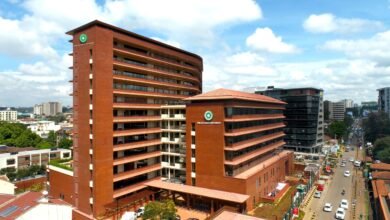The African Trade Insurance Agency (ATIDI) has pledged its support for the 20 MW Ituka West Nile Uganda Ltd solar project, developed by Dubai-based Independent Power Producer (IPP), AMEA Power.
This support will be provided through ATIDI’s Regional Liquidity Support Facility (RLSF), which will offer payment guarantees on behalf of the Ugandan national power utility, Uganda Electricity Transmission Company Limited (UETCL).
This collaboration was announced during the 28th Conference of the Parties to the UN Framework Convention on Climate Change (COP28) in Dubai. It highlights ATIDI’s commitment to risk mitigation and project resilience in the sustainable energy sector.
The RLSF policy, set for an initial tenor of 15 years, will cover up to six months’ worth of revenue for the IPP. The signing of the RLSF policy is contingent upon both parties agreeing on the final form of the policy documents.
The electricity generated by the power plant will be sold to UETCL under a 20-year Power Purchase Agreement (PPA). Once constructed, the project will connect to the national grid via a new high-voltage transmission line run by UETCL.
“Over the past years, Uganda has demonstrated remarkable strides in its energy sector, and we are proud to play a role in this transformative journey. Our recent collaboration with IPPs in Uganda is not just about power generation; it’s about empowering communities, driving economic growth, and fostering a sustainable future,” said Manuel Moses, CEO, ATIDI.
The RLSF is a liquidity instrument provided by ATIDI to renewable energy IPPs that sell electricity to state-owned power utilities in ATIDI member states. It protects small and mid-scale renewable energy projects against the risk of delayed payments by public offtakers.
The RLSF is a joint initiative of ATIDI, KfW Development Bank, and the Norwegian Agency for Development Cooperation (Norad), created to support renewable energy projects in ATIDI’s member states.
This will be the first project considered for RLSF cover under Phase 2 of the initiative.
Phase 1 was successful, supporting five renewable energy projects in Burundi, Malawi, and Uganda. The 7.8 MW Nyamwamba II Run-of-the-River project in Uganda, which has benefited from RLSF support, continues to perform well with no payment delays from UETCL.
“Investing in renewable energy in Uganda is part of our pledge to deliver sustainable energy to all. We thank ATIDI for their support, which is crucial for the success of the project. Our solar project will not only help provide essential power to homes and industries but will also drive economic growth, creating jobs, and safeguarding the environment,” said Aqueel Bohra, Senior Director – Project Development, AMEA Power.
Uganda has made significant strides in increasing electricity access rates, with annual increases of 3% between 2010 and 2020. The current electricity access rate is 42%, a significant improvement from the 12% rate in 2010.
The national installed capacity is 1,346 MW, primarily from hydro-powered projects, making the country vulnerable to the impacts of climate change in the event of prolonged drought.






Inspiring quest there. What happened after?
Thanks!